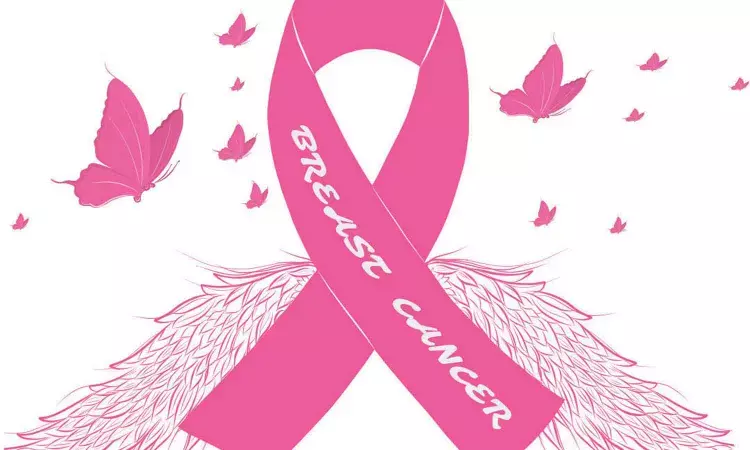- Home
- Medical news & Guidelines
- Anesthesiology
- Cardiology and CTVS
- Critical Care
- Dentistry
- Dermatology
- Diabetes and Endocrinology
- ENT
- Gastroenterology
- Medicine
- Nephrology
- Neurology
- Obstretics-Gynaecology
- Oncology
- Ophthalmology
- Orthopaedics
- Pediatrics-Neonatology
- Psychiatry
- Pulmonology
- Radiology
- Surgery
- Urology
- Laboratory Medicine
- Diet
- Nursing
- Paramedical
- Physiotherapy
- Health news
- Fact Check
- Bone Health Fact Check
- Brain Health Fact Check
- Cancer Related Fact Check
- Child Care Fact Check
- Dental and oral health fact check
- Diabetes and metabolic health fact check
- Diet and Nutrition Fact Check
- Eye and ENT Care Fact Check
- Fitness fact check
- Gut health fact check
- Heart health fact check
- Kidney health fact check
- Medical education fact check
- Men's health fact check
- Respiratory fact check
- Skin and hair care fact check
- Vaccine and Immunization fact check
- Women's health fact check
- AYUSH
- State News
- Andaman and Nicobar Islands
- Andhra Pradesh
- Arunachal Pradesh
- Assam
- Bihar
- Chandigarh
- Chattisgarh
- Dadra and Nagar Haveli
- Daman and Diu
- Delhi
- Goa
- Gujarat
- Haryana
- Himachal Pradesh
- Jammu & Kashmir
- Jharkhand
- Karnataka
- Kerala
- Ladakh
- Lakshadweep
- Madhya Pradesh
- Maharashtra
- Manipur
- Meghalaya
- Mizoram
- Nagaland
- Odisha
- Puducherry
- Punjab
- Rajasthan
- Sikkim
- Tamil Nadu
- Telangana
- Tripura
- Uttar Pradesh
- Uttrakhand
- West Bengal
- Medical Education
- Industry
Higher vitamin D levels beneficial for breast cancer patients: Study

Having clinically sufficient vitamin D levels at the time of breast cancer diagnosis is associated with better outcomes.
USA: Higher vitamin D levels at the time of diagnosis may improve outcomes in breast cancer patients, finds a recent study.
The findings of the study were presented at the American Society of Clinical Oncology (ASCO) 2021 virtual annual meeting by the first author Song Yao, a molecular epidemiologist and Professor of Oncology with the Department of Cancer Prevention and Control at Roswell Park.
The study is based on Kaiser Permanente Northern California's Pathways Study — a large prospective study in breast cancer patients that has been underway since 2006 under the direction of Larry Kushi, ScD, who is Senior Author on the new study.
"Consistent with results from randomized trials and meta-analyses, our findings from this large, observational cohort of breast cancer survivors with long follow-up provide the strongest evidence to date for maintaining sufficient vitamin D levels in breast cancer patients, particularly among Black women and patients with more advanced stage disease," notes Dr. Yao, a molecular epidemiologist and Professor of Oncology with the Department of Cancer Prevention and Control at Roswell Park.
"These findings highlight not just the role of vitamin D in breast cancer prognosis, but also the contribution of and need for prospective studies in cancer survivors to complement clinical trials," says study Senior Author Lawrence Kushi, ScD, Director of Scientific Policy at the Kaiser Permanente Northern California Division of Research.
The research team measured 25-hydroxyvitamin D (25OHD) levels from 3,995 women with breast cancer who were enrolled in the Pathways Study, using blood serum samples collected at the time of diagnosis. They examined potential determinants of 25OHD levels, including polygenic score. Vitamin D supplement intake, BMI, and race/ethnicity were the most influential factors on serum 25OHD levels, while genetic variants had only a limited impact, notes Dr. Yao.
The study categorized vitamin D levels based on clinical cutoffs: deficient (< 20 ng/ml), insufficient (20 to < 30 ng/ml), or sufficient (≥30 ng/ml). Dr. Yao and colleagues then evaluated these levels in relation to overall survival (OS), breast cancer-specific survival (BCSS), recurrence-free survival (RFS), and invasive disease-free survival (IDFS) after a median follow-up time of 9.6 years. The researchers built Cox proportional hazards models adjusting for non-clinical, clinical and treatment factors that were further stratified by stage, estrogen receptor (ER) status and body mass index (BMI).
"Having clinically sufficient vitamin D levels at the time of breast cancer diagnosis is associated with better outcomes," Dr. Yao notes. "While these results are consistent with our earlier analysis based on a subset of the study population, it's significant that we saw the same trends in this much larger, longer-term data set — suggesting an ongoing benefit for patients who maintain sufficient levels through and beyond breast cancer treatment."
The team also observed that associations were similar by ER status, and found that the association between vitamin D levels and breast cancer outcomes appeared to be stronger among study participants diagnosed at more advanced stages or with lower body mass index. Black women had the lowest vitamin D levels, which might contribute to their generally poorer outcomes after breast cancer diagnosis.
"In the context of supportive data from recent randomized trials and meta-analyses, our findings support the use of daily vitamin D supplementation to maintain sufficient vitamin D levels after breast cancer diagnosis, particularly among Black women and patients diagnosed with later-stage disease," says senior author Christine Ambrosone, PhD, Co-Principal Investigator of the Pathways Study and Senior Vice President of Population Sciences and Chair of Cancer Prevention and Control at Roswell Park.
Reference:
"Clinically sufficient vitamin D levels at breast cancer diagnosis and survival outcomes in a prospective cohort of 3,995 patients after a median follow-up of 10 years," (abstract 10510) was presented as a poster discussion session at the American Society of Clinical Oncology (ASCO) 2021 virtual annual meeting.
DOI: https://meetinglibrary.asco.org/record/196871/abstract
Dr Kamal Kant Kohli-MBBS, DTCD- a chest specialist with more than 30 years of practice and a flair for writing clinical articles, Dr Kamal Kant Kohli joined Medical Dialogues as a Chief Editor of Medical News. Besides writing articles, as an editor, he proofreads and verifies all the medical content published on Medical Dialogues including those coming from journals, studies,medical conferences,guidelines etc. Email: drkohli@medicaldialogues.in. Contact no. 011-43720751


